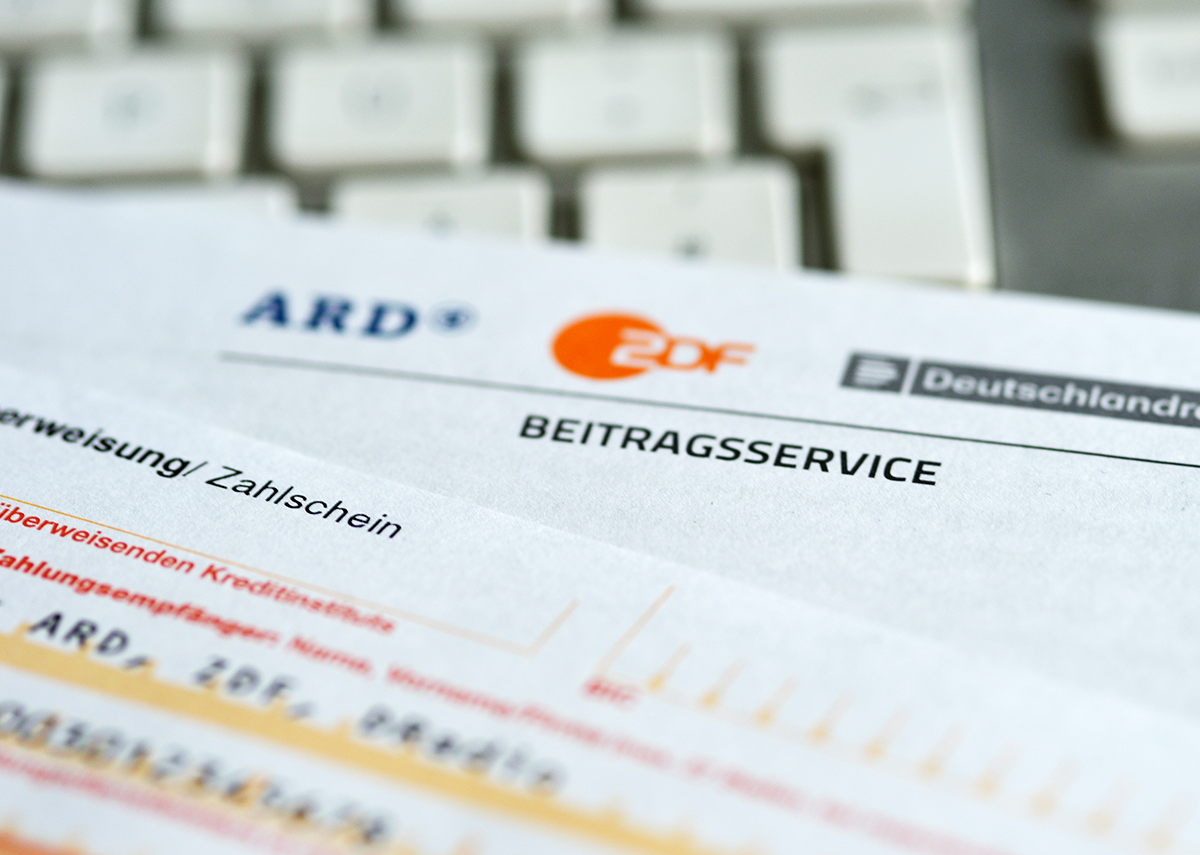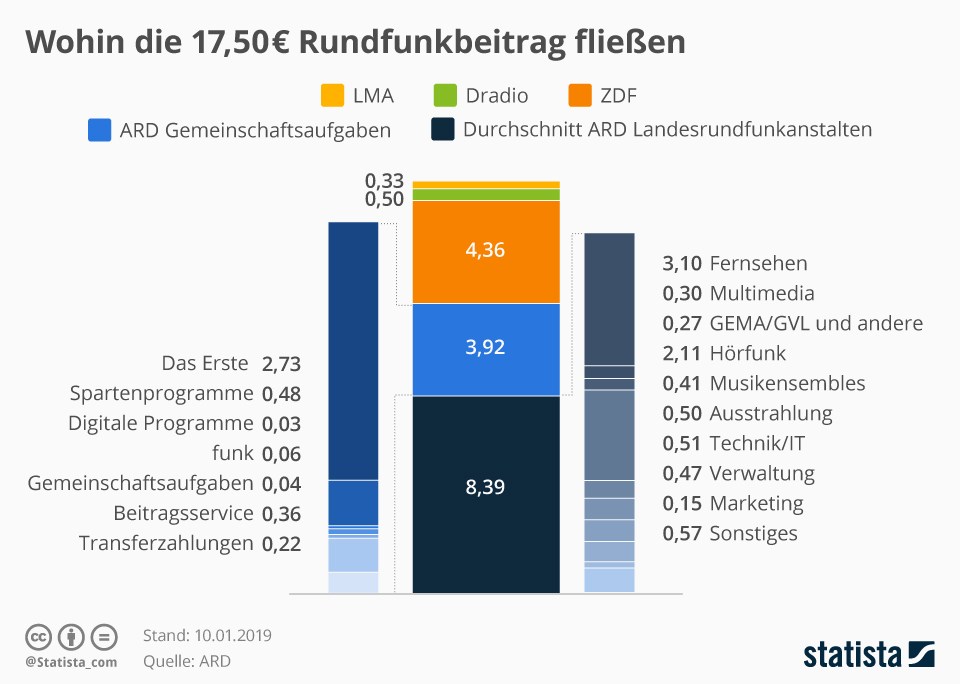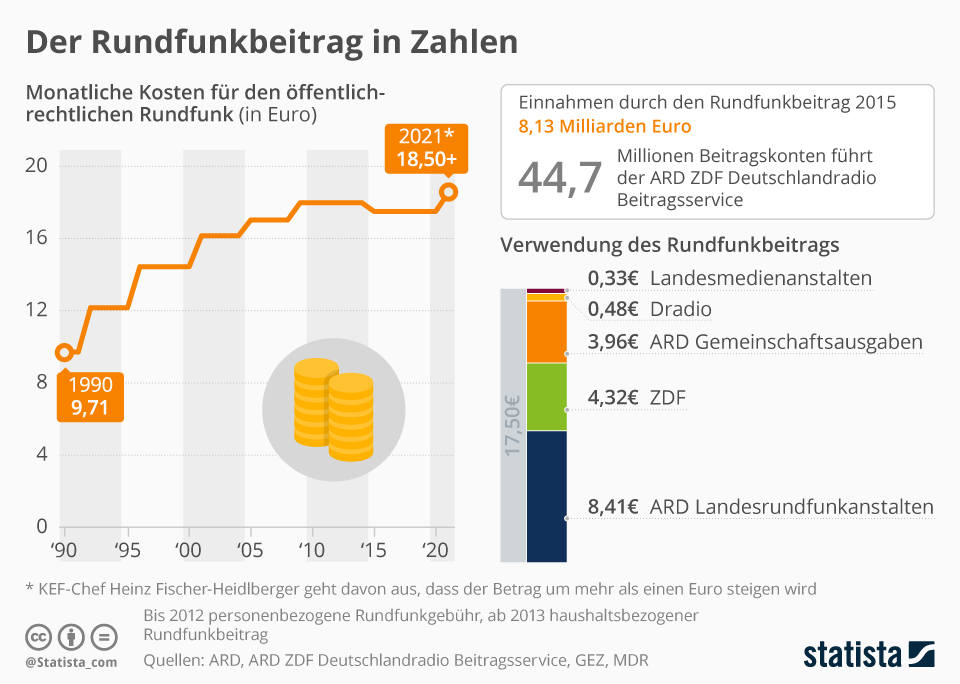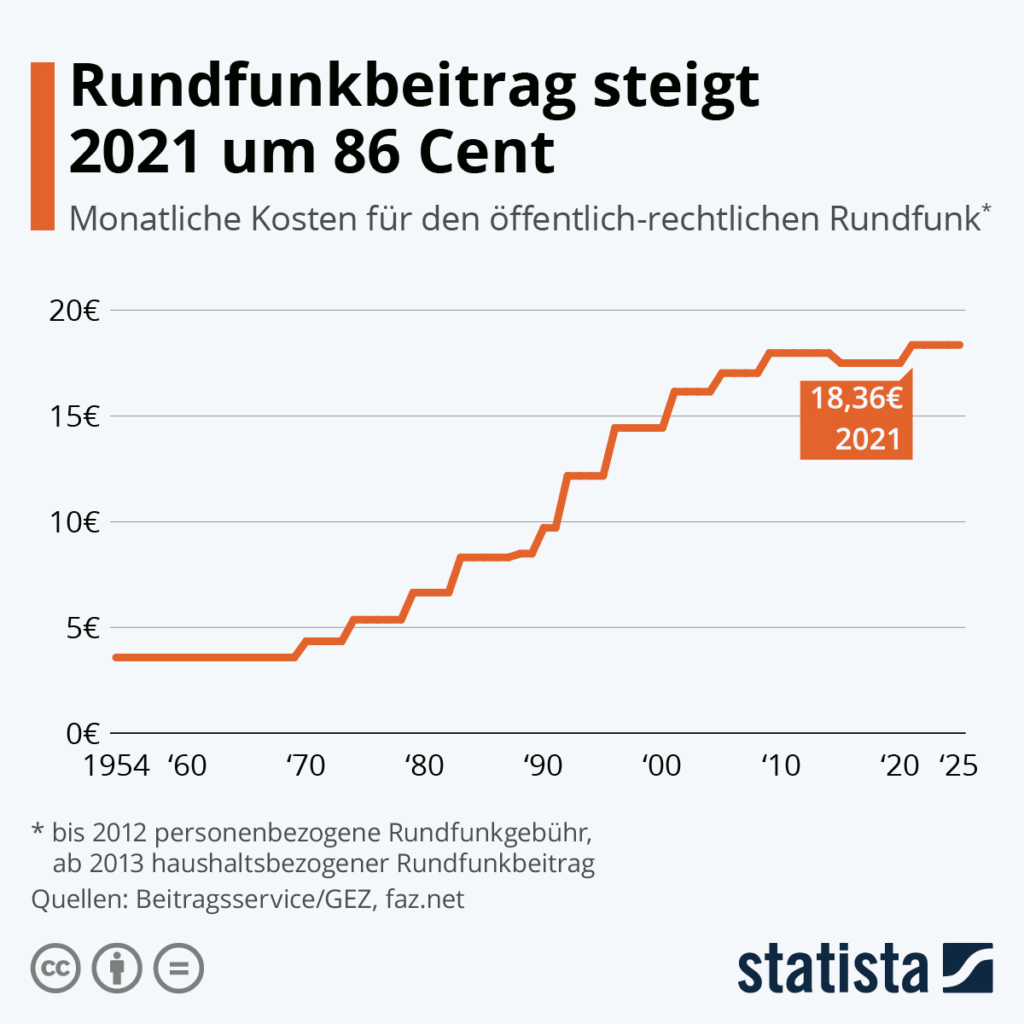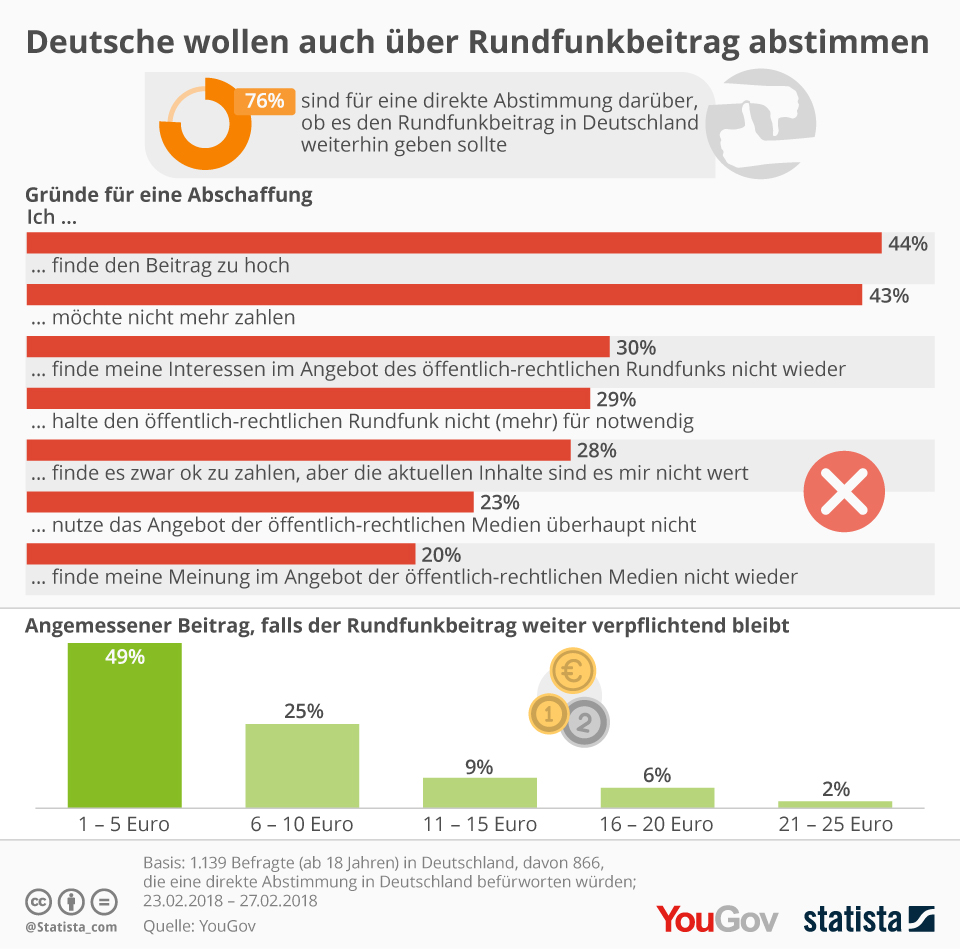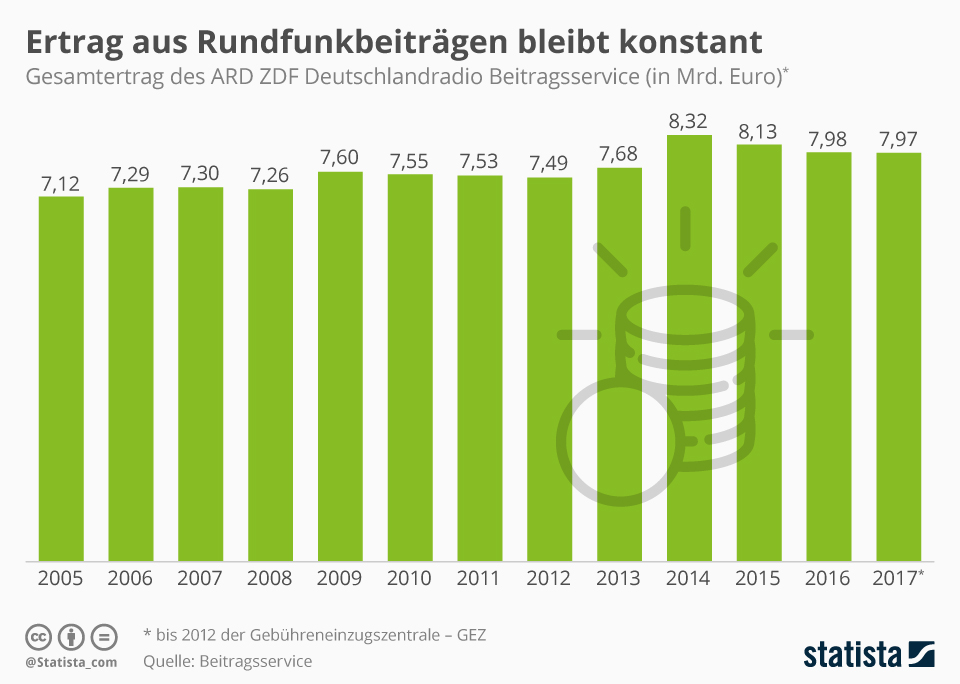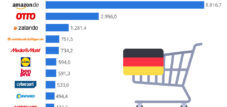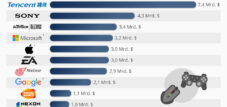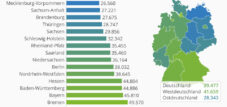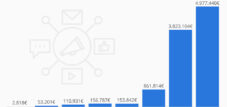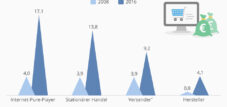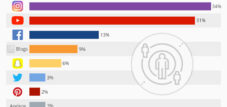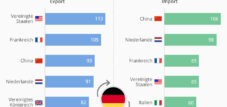Where the 17.50 euro broadcasting fee goes
Language selection 📢
Published on: 11th January 2019 / Update from: August 8, 2021 - Author: Konrad Wolfenstein
+++ Where the 17.50 euro broadcasting fee goes +++ The broadcasting fee in numbers +++ 2017: Broadcasting fee is set to increase significantly +++ Germans also want to vote on the broadcasting fee +++ Income from broadcasting fees remains constant +++
Where the 17.50 euro broadcasting fee goes
Every household in Germany (with a few exceptions) pays 17.50 euros for public broadcasting in the country. In addition to ARD, ZDF and Dradio, this also finances the state media authorities and the supervisory authority for private broadcasting and telemedia in this country. The graphic shows how the contribution is distributed across the individual institutions. At 8.39 euros, the largest share goes to the ARD state broadcasters. A further 3.92 euros will be used for ARD joint tasks. ZDF receives 4.36 euros, Dradio receives 0.50 euros and 0.33 euros goes to the state media authorities, as data from ARD shows , which relates to average usage in 2016/2017.
The broadcasting fee in numbers
In the future, the broadcasting fee could rise to over 18.50 euros. Each household currently pays 17.50 euros for public radio and television. The contribution service manages a total of 44.7 million accounts, which together bring over eight billion euros into the broadcasters' coffers every year. The biggest beneficiaries are ARD and ZDF.
2017: Broadcasting fees are to increase significantly
In April 2016, the Commission for the Financial Requirements of Public Broadcasters (KEF) recommended reducing the broadcasting fee by 30 cents. The KEF now calculates differently. Commission boss Heinz Fischer-Heidlberger told MDR that he expects contributions to increase by more than one euro. Fischer-Heidlberger cites rising costs – including for media libraries and telemedia – as the reason for this development. The contribution service currently brings over eight billion euros into the broadcasters' coffers every year.
Broadcasting fees will rise by 86 cents in 2021 - Image: Statista
Germans also want to vote on broadcasting fees
In Switzerland, citizens have just spoken out clearly against the abolition of broadcasting fees in a referendum. Meanwhile, Germans would also like to vote on the financing of their public broadcasting, as a recent survey by YouGov shows. 76 percent of those surveyed are in favor of a direct vote on whether the broadcasting fee should continue to exist in Germany. The most important reason for abolition is the amount of contributions. Others do not find their interests or opinions reflected in the offerings of public broadcasting. If the contribution remains, 74 percent of those surveyed consider a contribution of a maximum of ten euros to be appropriate.
Germans also want to vote on broadcasting fees – Image: Statista
Income from broadcasting contributions remains constant
The income from the broadcasting fee (GEZ until 2012) was almost constant in 2017 compared to the previous year. The contribution service from ARD, ZDF and Deutschlandradio reported income of 7.97 billion euros - a slight decline of 0.05 percent. As the graphic from Statista shows, revenues have increased continuously since 2005 and were over eight billion euros in 2014/15. In total, the contribution service recorded 45 million contribution accounts for 2017, of which a good 39 million were apartments. The remaining accounts are made up of businesses, hotels or holiday apartments and vehicles.
Income from broadcasting contributions remains constant – Image: Statista



